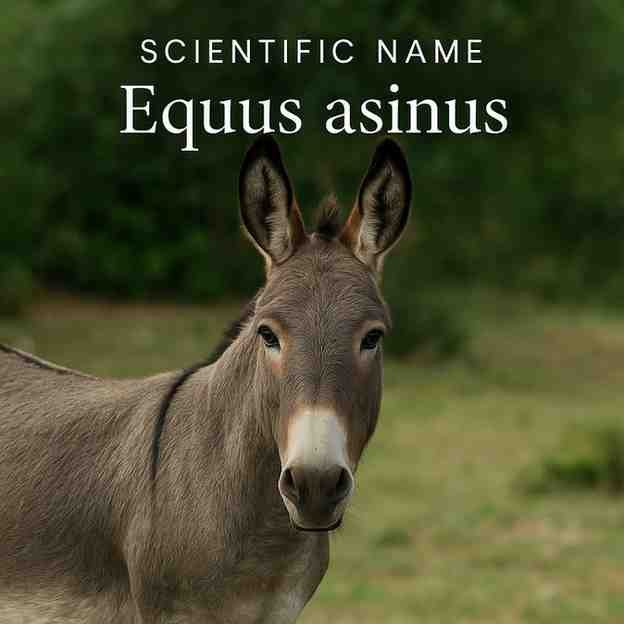What is the scientific name of donkey? The donkey’s scientific name is Equus asinus.
Donkeys are one of the oldest domesticated animals known to Earth. They have contributed extremely to agriculture, transport, and human livelihood for thousands of years. Yet, most know minimal: the scientific name of a donkey, its biological classification, and where it fits into the animal kingdom.

In this article, you shall learn about the appropriate scientific name of donkey, biological classification, and scientific name of donkey and pronunciation in the right way. We will also include related terms like the biological name of the donkey for your understanding of this animal in scientific terms.
Table of Contents
What Is the Scientific Name of Donkey?
The scientific name for a donkey is Equus asinus. It has a binomial nomenclature, which is normally followed in biological areas, and it was introduced by Carl Linnaeus. It is also referred to all over the world by scientists.
- Equus is a genus that also includes horses, zebras, and donkeys.
- Asinus is the species referring specifically to the donkey.
Therefore, the zoological name of the donkey is Equus asinus.
Scientific Name of Donkey Pronunciation
The pronunciation of the scientific name of the donkey can be helpful for students and researchers. Therefore, the correct pronunciation of Equus asinus is:
- “EH-kwus AH-sin-us”
Let us break it down:
- Equus = “EH-kwus” (not “ee kwus”)
- Asinus = “AH-sin-us”
So when asked about the scientific name donkey pronunciation, you can confidently say “EH-kwus AH-sin-us”.
Classification of Donkey: A Complete Breakdown
To understand how donkeys are classified in science, we can look at their complete biological taxonomy:
| Taxonomy Rank | Classification |
|---|---|
| Kingdom | Animalia |
| Phylum | Chordata |
| Class | Mammalia |
| Order | Perissodactyla |
| Family | Equidae |
| Genus | Equus |
| Species | asinus |
This structure shows the exact placement of the donkey scientific name within the animal kingdom.
Scientific differences between a donkey and a horse
Both donkeys and horses belong to the same genus: Equus. Despite this, they are different species. The horse is called Equus ferus caballus, and the donkey is called Equus asinus.
Here is a brief comparison:
| Animal | Scientific Name | Genus | Species |
|---|---|---|---|
| Horse | Equus ferus caballus | Equus | ferus caballus |
| Donkey | Equus asinus | Equus | aninus |
This table highlights the difference between the scientific name of donkey and the classification of horse.
Why is the donkey’s scientific name important?
Global communication is simplified when one uses the scientific name of a donkey. Only the common names differ by language and region; Equus asinus will always refer to the donkey.
Such advantages of scientific terminology are as follows:
- Species can be identified clearly
- Communication across languages can take place
- Research and classifications become easier
- Predictable use within biology and zoology
It, therefore, becomes apparent why understanding the scientific name of a donkey and its proper pronunciation is important.
Role of Donkeys in Human Civilization and Agriculture
Although this article discusses the scientific name for the donkey, it’s worth noting the importance of such animals throughout human history. Donkeys are strong, patient, and capable of living in inhospitable climates.
Today, in many countries, donkeys still serve their citizens to:
- Carry loads
- Plow fields
- Transport people in rural scenarios
Knowing the zoological name of a donkey not only helps science but also animal care and breeding programs.

